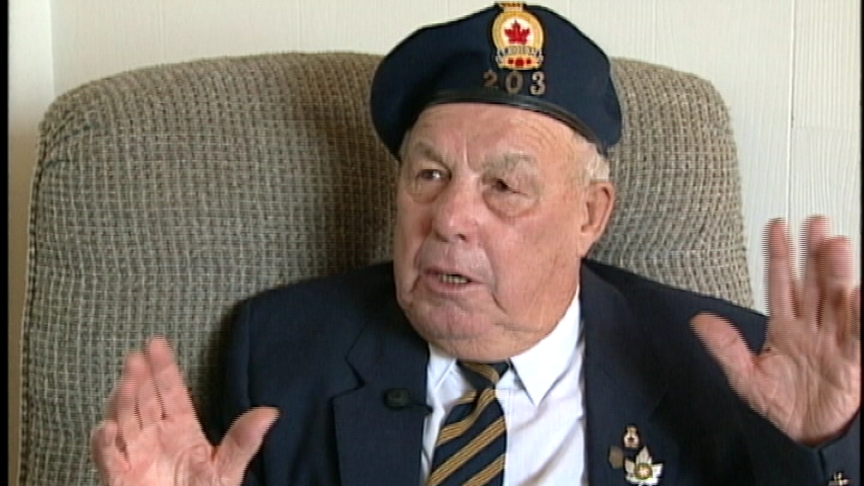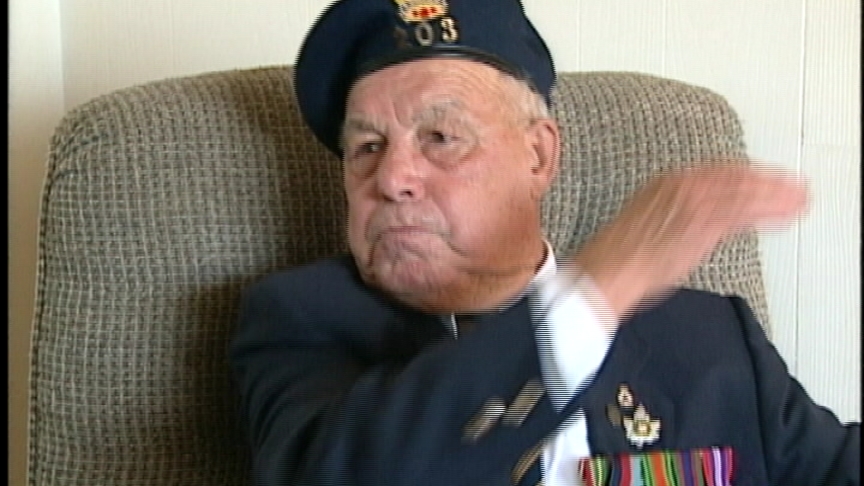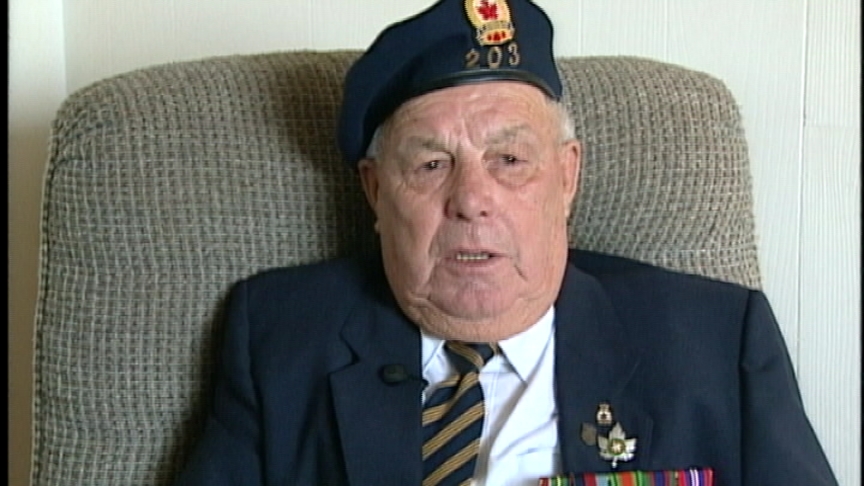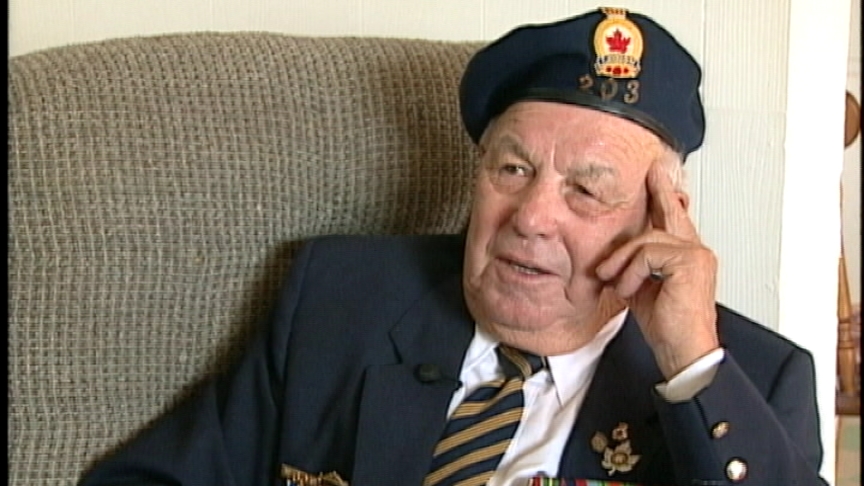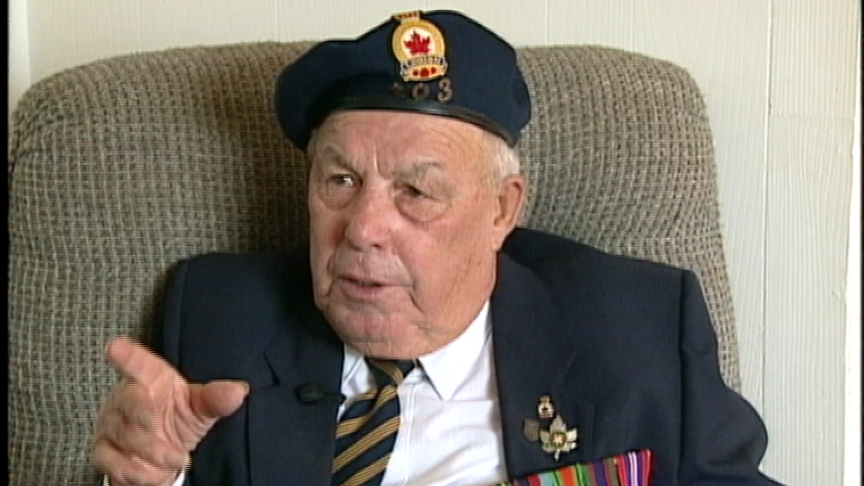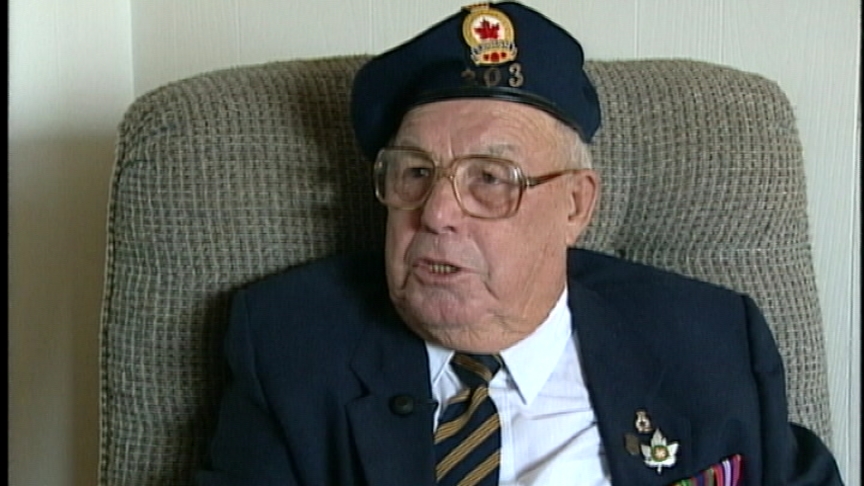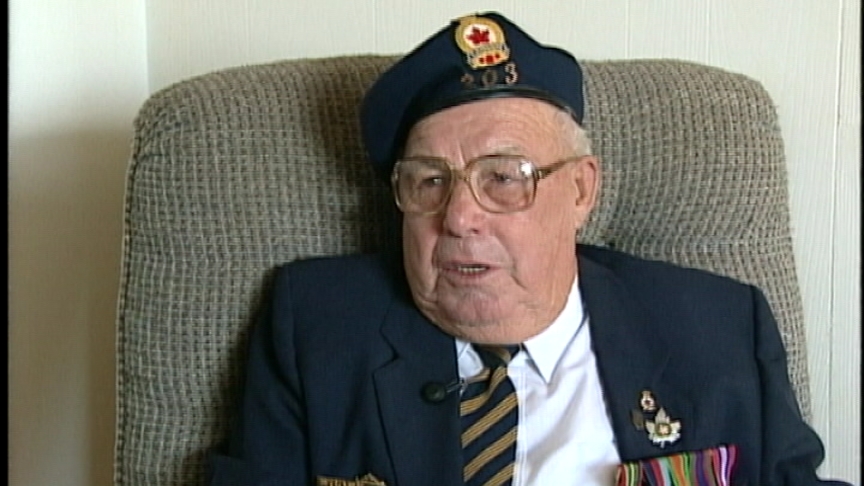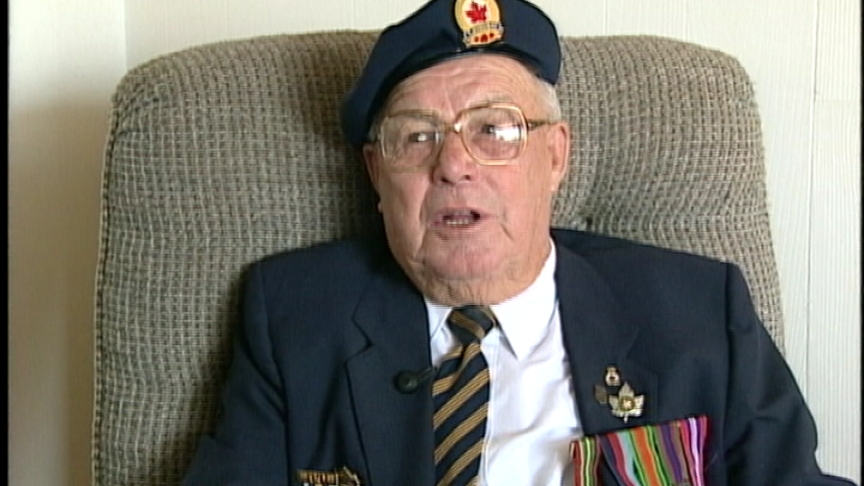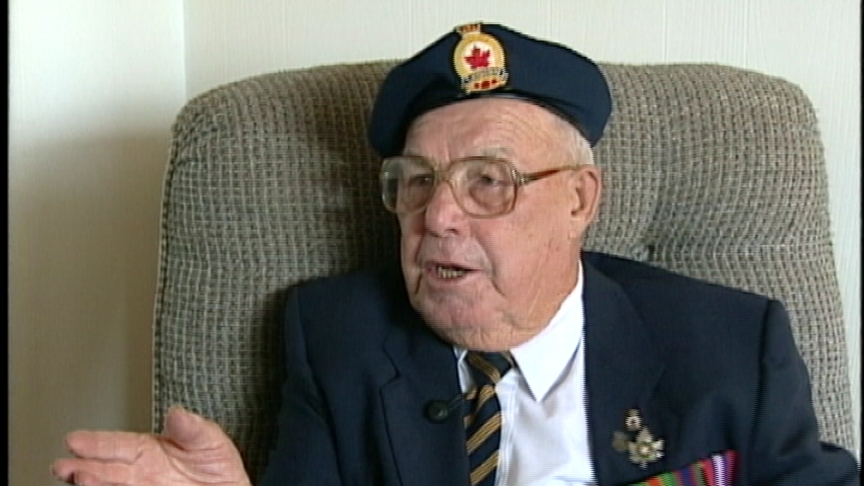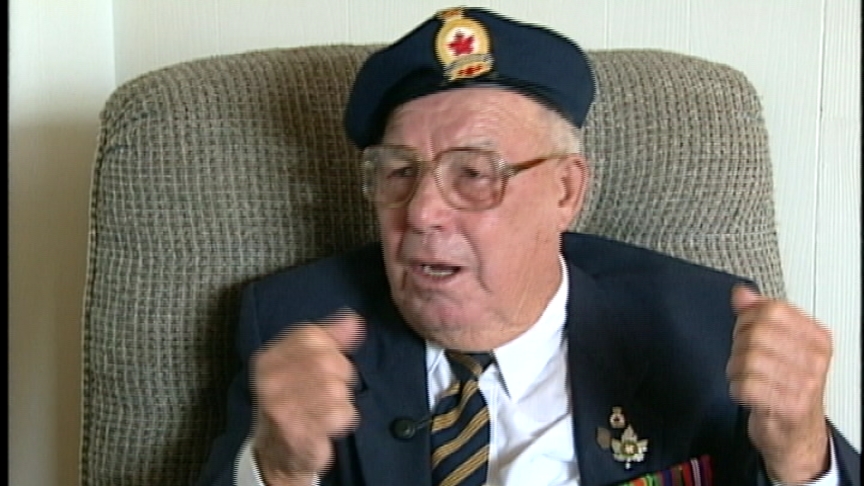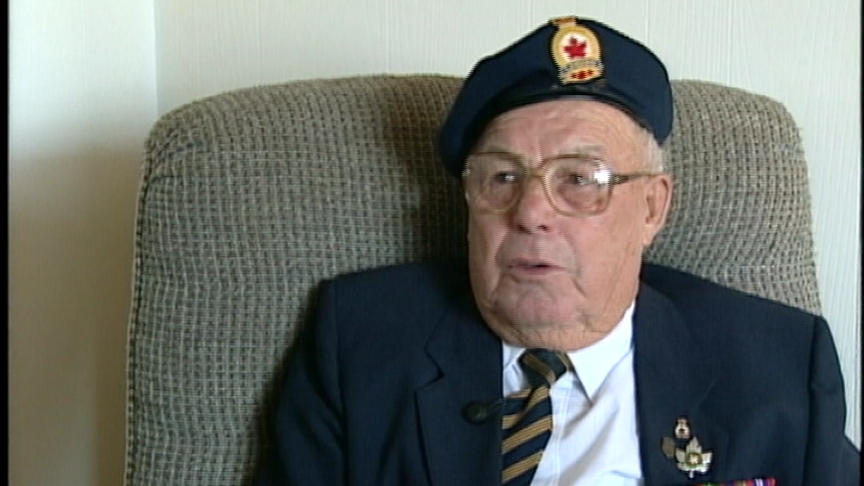They Were Going Down Like a Field of Hay
Heroes Remember
They Were Going Down Like a Field of Hay
Transcript
Description
Mr. Hunt describes close combat with the Japanese and the casualties inflicted by both sides.
Hector Hunt
Hector Hunt was born in Pabos Mills, Quebec, on December 9, 1911. His father was the local river guardian. Mr. Hunt was the second oldest of 16 children. He had little schooling, having gone to the woods at the age of ten to cut pulp with his father. He also transported supplies to his father when he was busy on the river. At sixteen, Mr. Hunt started work at the Chandler pulp mill for twenty-five cents and hour. When the opportunity to enlist occurred, he signed up anticipating better wages and lifestyle. He had very little basic training and no live ammunition weapons training. Mr. Hunt served in Newfoundland before eventually being shipped overseas toHong Kong. He was a POW in both Hong Kong and Japan, where he worked in the coal mines near Niigata. Mr. Hunt credits his strong faith for helping him to endure his time in captivity. After completing his service, Mr. Hunt returned home to work in the local mill.
Meta Data
- Medium:
- Video
- Owner:
- Veterans Affairs Canada
- Duration:
- 2:46
- Person Interviewed:
- Hector Hunt
- War, Conflict or Mission:
- Second World War
- Location/Theatre:
- Hong Kong
- Battle/Campaign:
- Hong Kong
- Branch:
- Army
- Units/Ship:
- Royal Rifles of Canada
- Occupation:
- Machine Gunner
Related Videos
- Date modified:



